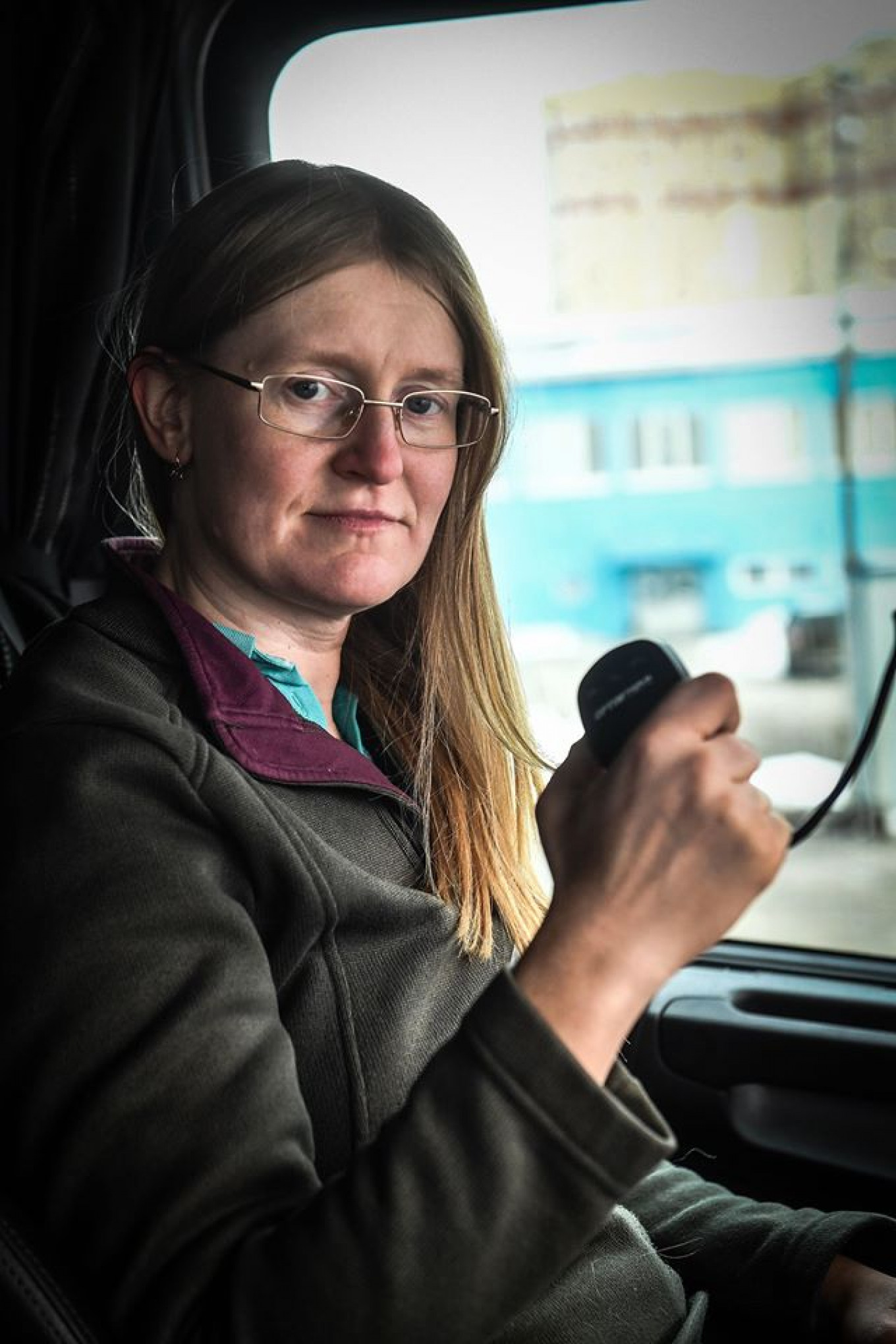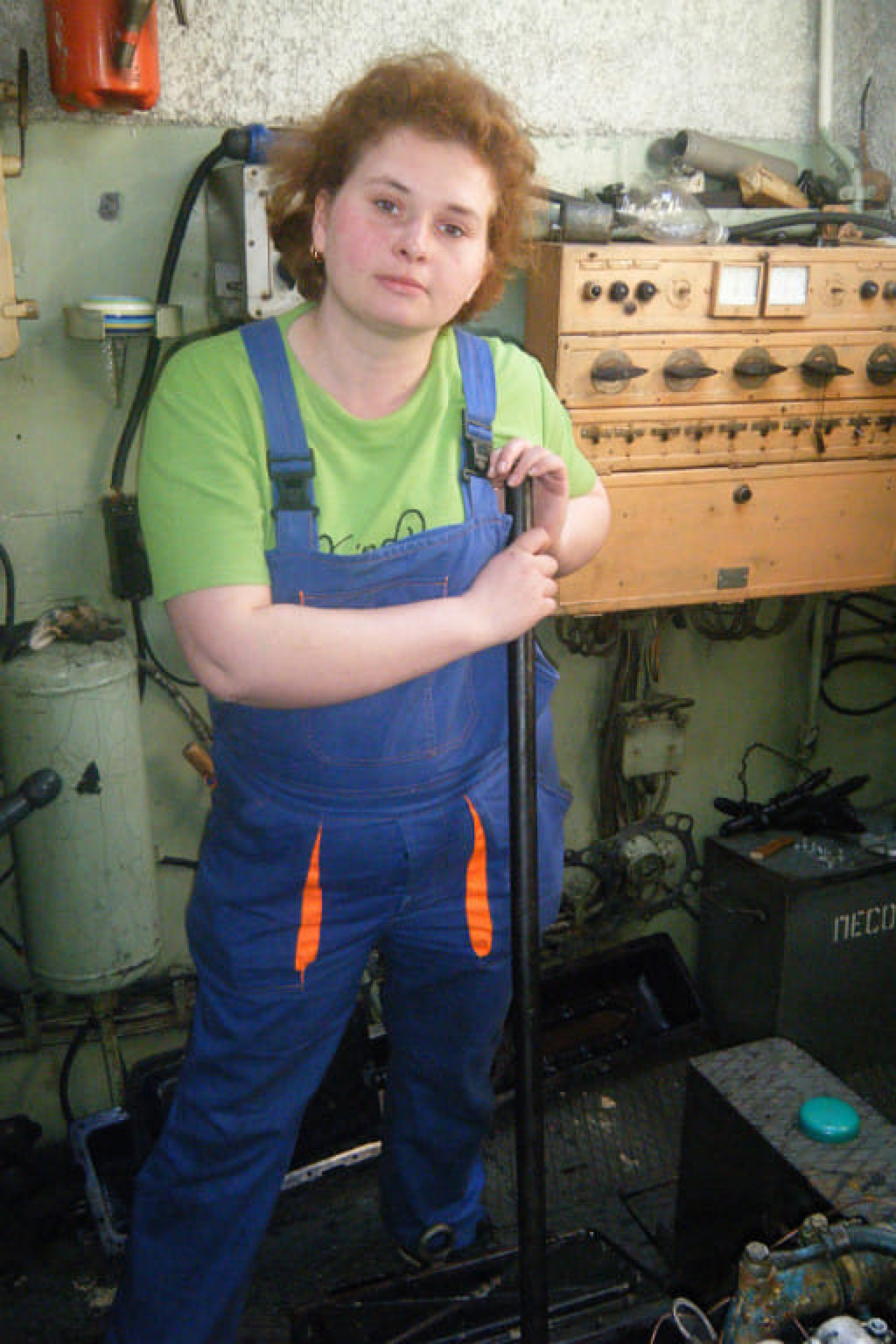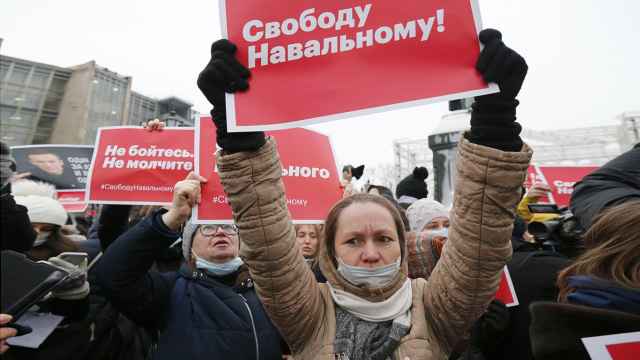Yevgenia Markova dreamed of being a truck driver all her life. There was just one problem — working as one would have been against the law.
“I’ve loved everything that can be driven since childhood — cars, river boats, trains. But these were all forbidden,” she told The Moscow Times.
For decades, women in Russia have been banned from being employed in 456 different jobs. Introduced by the Soviets in 1974 — and updated by President Vladimir Putin in 2000 — the legislation stops women from becoming train or truck drivers, members of ships’ crews and car mechanics, as well as from serving in the Navy.
The restrictions are a remnant of the Soviet-era belief that physically strenuous or dangerous labor is unfit for women, whose safety and ability to bear children were paramount to the survival of the communist state.

But attitudes are changing, and from Jan. 1, 2021, a Labor Ministry order to reduce the number of banned jobs to just 100 takes effect.
Eight months ahead of the change, women are already preparing for new jobs. This summer, Russian Railways will start training 10 women to work as assistant train drivers. After the six-month program, which will take place on Moscow’s suburban light rail system, the women will be able to start applying for positions.
Svetlana Medvedeva gained national attention after the Samara River Passenger Enterprise refused to hire her because of her gender. With assistance from with the St. Petersburg-based Anti-Discrimination Center Memorial (ADC) NGO, Medvedeva fought a five-year legal battle against the company. The UN Convention on the Elimination of All Forms of Discrimination Against Women (CEDAW) recognized Russia’s banned jobs list as discrimination and even Russia’s Supreme Court ruled that the company had discriminated against Medvedeva by not hiring her.
Since 2017, Medvedeva has been working as a captain — one of the banned jobs for women — on a tow boat for a different shipping company. Despite her victory in the discrimination case, it took another three years for the government to pare down the banned jobs list for all women.
“I am very happy that the reality is already changing — women have started to be accepted for training in specialties that were formerly banned, including courses for metro drivers, and are being appointed to positions as ship mechanics and engineers,” Stefania Kulayeva, head of the ADC, told The Moscow Times. “Of course, from 2021 there will be many people who want to start working in these areas immediately.”
But 100 jobs will still be off-limits, including hazardous chemical handling, diving, mining, welding, firefighting and working as aviation mechanics.
Anti-discrimination advocates say the list of banned jobs should have been scrapped entirely, as it has been in fellow post-Soviet countries like Ukraine and Uzbekistan. The ADC’s #alljobs4allwomen campaign, started in March 2017 during Medvedeva’s discrimination case, is continuing to push for the list to be done away with entirely.
“Abolishing the bans on a number of very important and popular professions for women is undoubtedly a positive step, but it is not enough,” Kulayeva said. “Our goal is to abolish all discriminatory articles in labor codes and these lists of prohibited professions and types of work for women.”
Changing the list of banned jobs is one step in Russia’s long road to gender equality in the workplace. Russia ranks 49th in the United Nations’ Gender Inequality Index, a ranking that takes labor participation rates into account. Sexism, sexual harassment and the gender pay gap also persist.
And while Russia has a female Central Bank head and speaker of the upper house of parliament, the country’s leadership is still predominantly male, with only 15% of seats in parliament occupied by women. Many activists link this to the government’s slow response to women’s labor issues.

“Since our country is purely patriarchal, the stereotypes make sense,” Medvedeva said. “The government does not want to see women on a par with men. Our rulers consider women to be incubators, and declare this view from the highest podiums.”
“Russia not only does not observe international agreements, but also its Constitution which says in black and white that everyone has the right to work without any discrimination,” she added.
After years of persistent fighting, Markova was able to find a company that would hire her as a truck driver despite the restrictions. She believes Russia still has a long way to go.
“Stereotypes are not so easily eliminated. To eliminate stereotypes, you have to start with the way children are raised,” she said.
A Message from The Moscow Times:
Dear readers,
We are facing unprecedented challenges. Russia's Prosecutor General's Office has designated The Moscow Times as an "undesirable" organization, criminalizing our work and putting our staff at risk of prosecution. This follows our earlier unjust labeling as a "foreign agent."
These actions are direct attempts to silence independent journalism in Russia. The authorities claim our work "discredits the decisions of the Russian leadership." We see things differently: we strive to provide accurate, unbiased reporting on Russia.
We, the journalists of The Moscow Times, refuse to be silenced. But to continue our work, we need your help.
Your support, no matter how small, makes a world of difference. If you can, please support us monthly starting from just $2. It's quick to set up, and every contribution makes a significant impact.
By supporting The Moscow Times, you're defending open, independent journalism in the face of repression. Thank you for standing with us.
Remind me later.







